Water Quality Myths Debunked: What Really Keeps Your Pool Safe?
When it comes to pool water quality, there’s no shortage of myths and misconceptions. From the belief that crystal-clear water equals cleanliness to the idea that saltwater pools don’t use chlorine, misinformation can lead to poor water management and potential health risks. At Trisley’s Hydraulic Services, we specialise in keeping aquatic facilities safe, efficient, and compliant. Let’s separate fact from fiction and uncover what really keeps your pool water safe.
Myth 1: Clear Water Means Clean Water
The Truth: Just because a pool looks clean doesn’t mean it’s free of bacteria or contaminants. Harmful microorganisms like Cryptosporidium, E. coli, and Giardia can thrive in water that appears crystal clear. Proper filtration, disinfection, and water chemistry balance are essential to maintaining a truly safe swimming environment.
Best Practice: Regularly test for chlorine levels, pH balance, and combined chlorine to ensure optimal sanitation.
Myth 2: Chlorine Causes Red Eyes and Skin Irritation
The Truth: Many swimmers blame chlorine for eye and skin irritation, but the real culprit is chloramine buildup—a byproduct of chlorine reacting with organic matter like sweat, urine, and body oils. High chloramine levels indicate that a pool needs shock treatment or improved ventilation.
Best Practice: Keep free chlorine levels balanced (1-3 ppm) and shock the pool regularly to break down chloramines.
Myth 3: Saltwater Pools Don’t Use Chlorine
The Truth: Saltwater pools do contain chlorine—it’s just generated differently. Instead of adding chlorine manually, a salt chlorinator converts salt into chlorine through electrolysis. While saltwater pools may feel gentler on the skin, they still require proper water chemistry management to remain effective.
Best Practice: Monitor chlorine production and salt levels, and maintain the appropriate pH to prevent corrosion and scaling.
Myth 4: More Chlorine = Safer Water
The Truth: Over-chlorinating a pool can lead to chemical imbalances, strong odors, and swimmer discomfort. More isn’t always better—what’s important is maintaining the right balance. High chlorine levels can also damage pool equipment and surfaces over time.
Best Practice: Keep chlorine levels within the recommended range and use secondary sanitisation methods like UV or ozone systems for added protection.
Myth 5: Pool Chemicals Do All the Work
The Truth: While chemicals play a vital role in disinfection, they are only part of the equation. Proper filtration, circulation, and routine maintenance are just as important. If a pool’s pump and filter system aren’t working efficiently, even the best chemical balance won’t prevent water quality issues.
Best Practice: Regularly clean filters, check pump efficiency, and ensure proper water circulation to prevent dead zones where bacteria can grow.
Myth 6: Natural and Organic Pool Treatments Work Just as Well as Traditional Methods
The Truth: Some pool owners look for “chemical-free” alternatives, but natural treatments alone are not sufficient to maintain safe water quality in commercial and public pools. Bacteria, viruses, and algae require proven sanitisation methods to keep water safe.
Best Practice: If you want to reduce chemical use, consider UV-C or ozone treatment as a supplement to chlorine for improved water quality.
The Bottom Line: Science, Not Myths, Keeps Pools Safe
Effective pool water management isn’t about following common myths—it’s about understanding water chemistry, maintaining proper filtration, and using the right sanitisation methods. At Trisley’s Hydraulic Services, we provide expert advice and high-performance solutions to keep aquatic facilities safe, compliant, and running at their best.
Need help optimising your pool’s water quality? Contact us today for expert solutions tailored to your facility!

